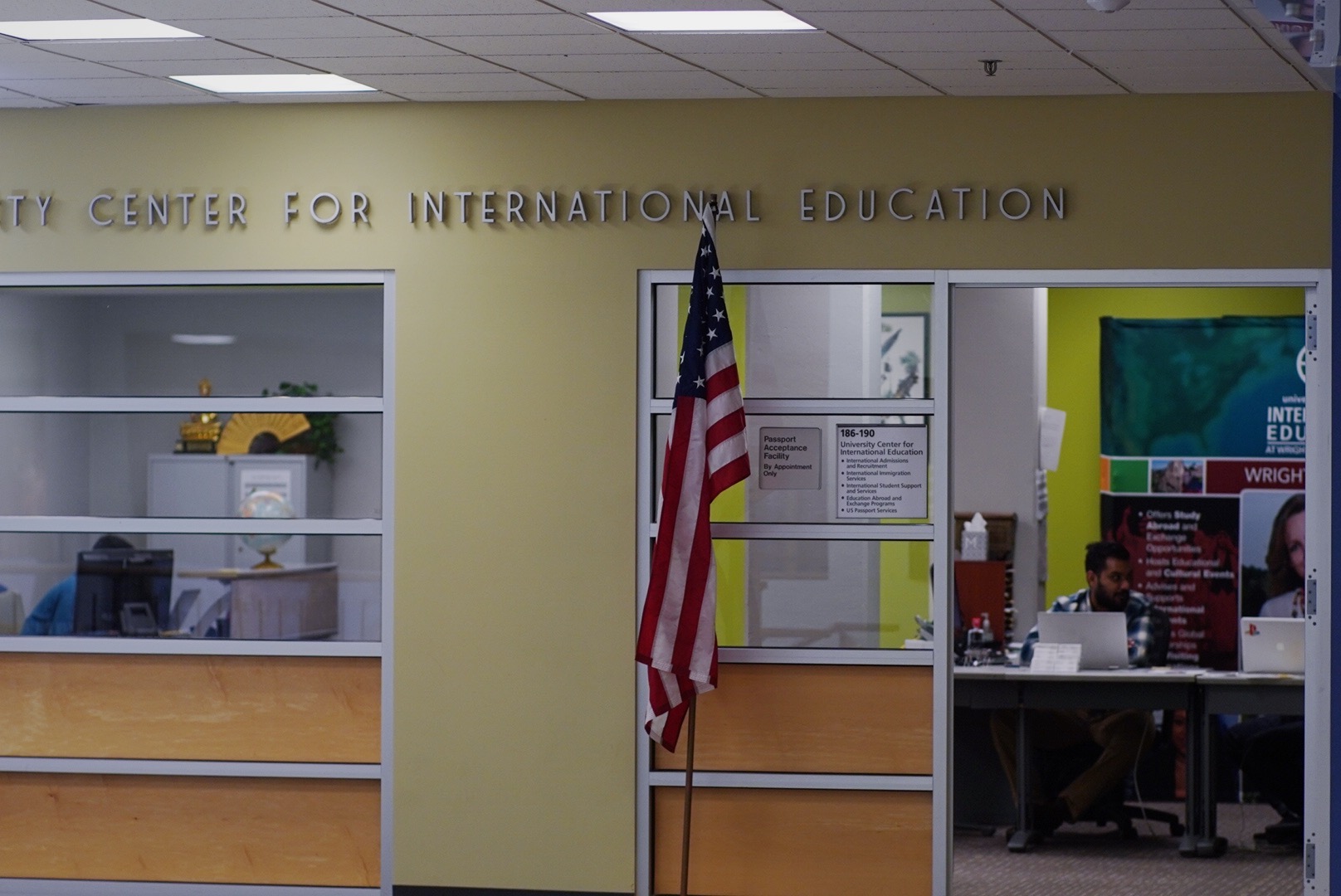
UCIE office | Photo by Emily Linker | The Wright State Guardian
Studying abroad can change a student’s life. From connecting with a culture to learning a new language, the benefits range from bolstering a resume to expanding a worldview.
Studying abroad may seem like a distant dream at times, but Wright State University’s University Center for International Education (UCIE) team can help make it realistic and affordable.
Getting started
A concern some students may have is the length of a program. Longer programs may be ideal for a student and frightening for another. UCIE offers a multitude of programs to accommodate different students’ needs.
“A study abroad experience can range from a two-week faculty-led group program to a few weeks in summer to an entire semester or even full year, but all of them will be a high impact learning experience for students,” a UCIE representative said.
The faculty led programs will be ideal for those who prefer shorter trips and a more rigid schedule. Those participating in the summer, semester, or full year programs are met with more flexibility and a longer trip.
According to University Studies Abroad Consortium (USAC), a nonprofit that offers study abroad programs, they offer 24/7 health and safety support and on-site support staff. This is a great option for students who may encounter any problems during the trip.
Why study abroad?
Studying abroad can offer an abundance of benefits to those who participate. In some professions, being bilingual is a necessity; in other professions, understanding the geopolitics of a location could be imperative. These are all skills that can be attained while on a study abroad trip.
“Employers across all professions look to hire well rounded students who can think critically, navigate situations with diplomacy, have cross cultural understanding of others in a diverse environment, and have a sense of inquisitiveness to learn about something they don’t know,” a UCIE representative said.
The benefits can be personal as well. A student may be able to connect with their culture and heritage in a way they have not before. From eating the food of a new nation to visiting important cultural sites, the experience can expand one’s perspective.
Money matters
The cost is sometimes the biggest deterrent to those interested in studying abroad. There are many scholarships and financial aid options to help ease the cost.
Financial aid from FAFSA can possibly be used towards a study abroad. While this may not be the case for everyone, it is possible to use the aid to substitute a semester abroad. To find out eligibility, it is recommended to contact a UCIE advisor for an advising appointment.
Scholarships are offered through multiple organizations for people who identify as LGBTQ+, are minorities, and other groups. One possible scholarship for students is the Benjamin A. Gilman International Scholarship.
“Over 3,600 scholarships of up to $5,000 will be awarded this academic year for U.S. citizen undergraduates to study or intern abroad,” the Benjamin A. Gilman website said.
According to the website, the student must be a Pell Grant recipient, attend a credit-bearing program that lasts over 21 days and be a citizen of the United States. For more information, students can visit https://www.wright.edu/international-education.
